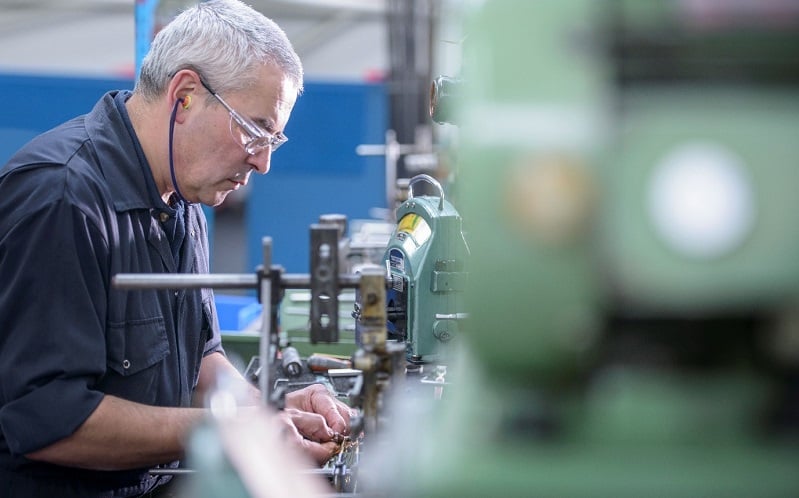
CNC honing is a specialised manufacturing procedure used to finish a wide range of industrial and machine components. Here are answers to five of the most frequently asked queries that we receive about CNC honing:
1) What Is ‘CNC’ Honing?
Computer numerical controlled (CNC) honing is an automated process that is an alternative to manual honing (parts held by hand or semi-automated fixturing).
A programme is inputted into the computer control to set the spindle speed (rotational), reciprocating speed (up & down movement), and the feed rate (the rate of material removal). All of these parameters can be adjusted within the program cycle which is a great advantage and achieves more consistent surface finishes and gives a greater control of size.
The honing process is used to achieve size and refine the finish of previously machined bores. It is also used for creating special surface finishes for many different applications to a high level of surface measurement - for example, cross hatch patterns for oil retention on automotive engine blocks or smooth finishes for oil seals etc.
Alternatively, manual honing is a process where the spindle rotates but tool expansion and reciprocating speed (up & down) is controlled by hand. However, some conventional honing machines do have the capacity to have the stroke automated along with a timer type feed system.
Both CNC and manual honing are carried out using stone “sticks”. These are generally made from aluminium oxide or silicon carbide for common materials, and diamond and borazon stones for more exotic materials, among other mediums for special applications.
2) How Does CNC Honing Work?
CNC honing machines are highly specialist and require fully trained staff to operate them correctly. The key information required for set-up is as follows: -
- the specification of material type
- pre-hone size requirement
- finish hone size requirement
- surface finish requirement
- and any application specific texture requirements such as cross hatch etc.
All of these parameters are entered into CNC control and this creates the basis of the program. Once the parts are loaded, and cycle start is selected, the program will run.
When the cycle completes the first component, it will be removed & inspected to confirm that it is within drawing specification. If it is found to be out, minor adjustments can be made to correct.
3) What Advantages Does CNC Honing Have Over Manual Honing?
While manual honing still has an important place in the industry, particularly for completing prototypes, thin wall components or small production runs, CNC honing is a faster and more consistently accurate option for large-scale production.
With a CNC honing machine, you'll be able to produce standardised results, even when the components you're dealing with have microscopic size differences. CNC honing can produce high-quality surface finishes, so it's ideally suited to high-precision tasks.
4) What Applications Does CNC Honing Have?
An array of manufacturing industries that require precision components can benefit from CNC honing. At Hone-All, for example, we work with businesses in sectors as diverse as motorsports, hydraulics, medical equipment manufacturing, aerospace and defence, and oil and gas.
5) How Much Does CNC Honing Cost?
As CNC honing requires the highest level of accuracy, the amount you'll pay will depend on the size and complexity of the component combined with the amount of material left in the bore to be removed by honing.
At Hone-All, we'll discuss your project with you in detail and provide you with a personalised, competitive quote including what stock removal we would recommend to achieve your perfect finish for the best possible price.
Get In Touch
To learn more about our working practices or the CNC honing process, please call 01525 370666 or complete our contact form today.






